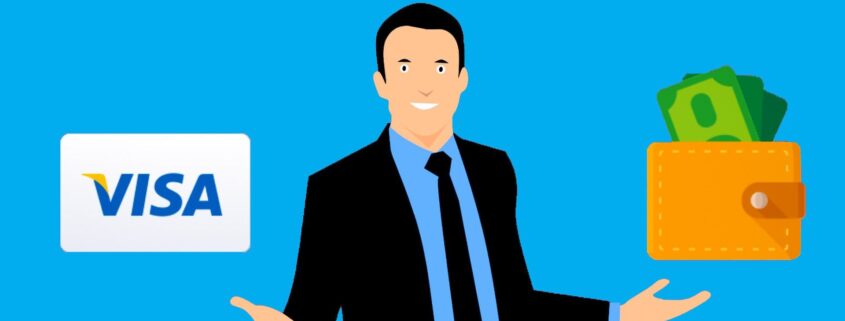How to Dispute a Charge on Your Visa Card
Let’s say you purchased an awesome shirt online. It’s comfortable, it looks great…but when you try it on, you find a big tear in the seam. What do you do?
Your first course of action should be to contact the merchant directly and attempt to initiate a return. The seller’s return policies should be listed on their site. They should also be linked in the order confirmation email sent to you before the goods arrived. This document will outline their refund requirements, such as a deadline, or whether tags are required.
However, even if your situation doesn’t exactly fall within the parameters, it’s still worthwhile to reach out to the merchant. In the example we outlined above, many merchants would be willing to work with you if you make an honest, straightforward request for a refund.
If the merchant denies your request for a refund, though, there’s another option available to help you recover those lost funds.
How to File a Chargeback
The chargeback process lets you dispute a charge made on your credit or debit card and ask your card issuer to reverse the transaction. Essentially, you disputing the validity of the transaction and request to get your money returned.
However, keep in mind that a chargeback is not the same thing as a refund. Chargebacks should not be attempted in place of resolving matters with the merchant first. Instead, a chargeback should be filed only after all efforts have been exhausted to get the merchant to cooperate.
To start the chargeback process, contact your bank and they will walk you through what needs to be done. The following steps show the broad strokes of initiating a Visa chargeback:
- Contact your card issuer.
- File a dispute and provide an explanation of why you’re challenging the transaction in question.
- Your request is then sent to the acquirer/card issuer of the merchant.
- The request is forwarded to the merchant.
- The merchant can either agree to pay out and refund the transaction or fight against the chargeback.
There is a window allowed for the merchants to respond to the dispute. If they fail to respond, though, they immediately lose the dispute and the money will be restored to your account permanently.
Chargebacks are Bad for Business
The chargeback process is detrimental for the unsuspecting merchant, but there are also unforeseen consequences that will fall to you, the consumer. You need to be careful to avoid abusing the system; for example, filing a chargeback while holding on to the product or service rendered. This would be an illegitimate chargeback.
If the bank learns that an illegitimate chargeback was filed, you run the risk of your account being terminated. This could make it hard to find banking services and could negatively impact your credit score. Plus, if a merchant takes the chargeback to the arbitration stage and wins the case, the associated chargeback fee might pass to you (depending on your bank).
Lastly, the more chargebacks a merchant receives, the more they pay in fees. This will force them to raise their prices to compensate, hurting you and other consumers in the future.
As you can see, chargebacks should only be viewed as a last resort. Even then, they aren’t the best course of action; while some chargebacks can be resolved quickly, the process might drag on for weeks—even months—if the merchant wants to challenge the claim.
Fortunately, there is a perfectly reasonable option available. At eConsumer Services, we are equipped to secure a refund on your behalf. Our process is quick and painless. We’ll provide you with a claim form to fill out that can be completed in five minutes, and it doesn’t require any sensitive account information. Once you’ve filed a claim, we can get your money back quickly – usually within 24 hours or less.



